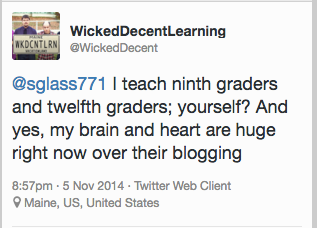I have heard Killer Mike's song "Reagan" a number of times. But recently I came across the video: it's a definite work of art. The cartoon lends an immediacy to Mike's rhymes about hypocrisy and the government's history of institutionalized racism. In both the music and the visuals, this is art that stakes its place in the world and does not shy away from controversy. But this song is not solely about criticizing the government. It's real potency comes from Mike's willingness to examine his and other rap artist's complicity in the problems plaguing his community:
"So it seems our people starve from lack of understanding/ Cause all we seem to give them is some balling and some dancing/ And some talking about our car and imaginary mansions/ We should be indicted for bullshit we inciting/ Hella children deaf and pretending it's exciting/We are advertisements for agony and pain/ We exploit the youth, we tell them to join a gang"
Of course, hearing people be critical of hip-hop's emphasis on money, violence, and objectification of women is not new. But it bears hearing again, especially by somebody talking from the inside.
Absolutely worth checking out.
It might even lead people to research what he's talking about.
Friday, September 12, 2014
Thursday, September 4, 2014
How Do Students Learn To Be Online?
In my Media Collage class, I have started off by asking students to think about learning. While the class is concerned primarily with understanding how to use our devices and the internet to be confident, creative, generous participants in digital spaces, the early discussions about learning have not necessarily focused on the digital. For example, the first project I assigned challenged them to create a 5 image story in Haiku Deck that focuses on something meaningful they have learned to do. It appears that all of the stories revolve around the decidedly "non-digital": perfecting a tennis serve, playing guitar, riding a surfboard, knowing how to share.
Strings: A learning Story - Created with Haiku Deck, presentation software that inspires
Once the students have finished this project, I plan on extending this discussion about the Haiku Deck narrative. Specifically, I am interested in the "learning constellation" that helped make possible the meaningful activity they learned to do. For example, after creating my Haiku Deck model, I did a Google Drawing of my "learning constellation":
Strings: A learning Story - Created with Haiku Deck, presentation software that inspires
Once the students have finished this project, I plan on extending this discussion about the Haiku Deck narrative. Specifically, I am interested in the "learning constellation" that helped make possible the meaningful activity they learned to do. For example, after creating my Haiku Deck model, I did a Google Drawing of my "learning constellation":
So here's the question that I am sure my students are wondering: "why is MrG taking all this time to discuss learning, especially when it does not seem to have anything to do with digital technology? What class did I sign up for anyway?"
And here's my answer.
I want to spend time thinking about something meaningful we each have learned to do as a springboard to consider how we learn to use our devices and be online. Looking back at my constellation, I see that I had some expert guidance, both in the form of friends who were willing to work with me and be role models with whom I could experiment, and professionals who released music that inspired me to pick up the instrument. Additionally, there are some things about my learning experience that I did not include on the constellation, like my passion and motivation to learn how to play, my agency in deciding I wanted to dedicate time to it, and my understanding that getting better requires mistakes. Lots of mistakes.
What it comes down to is my suspicion that our students' learning experiences regarding devices and the internet are woefully lacking. (As are most adults'.) Have they had mentors guiding them? Helping them build their online presence? Illustrating how to be curators of information? Providing opportunities to experiment as creators? Probably not. Instead, learning to navigate the digital world probably has occurred in fits and starts, with some help from peers, parents, teachers. But mostly with a whole lot of stumbling in the dark.
To consider what a true learning experience looks like, including the constellation that makes it possible, is to bring into sharper focus the haphazard way most of us, especially our kids, learn to be online. With this established, hopefully we will all be motivated to make our learning experiences with digital technology more deliberate and purposeful.
Monday, September 1, 2014
Subscribe to:
Comments (Atom)






















